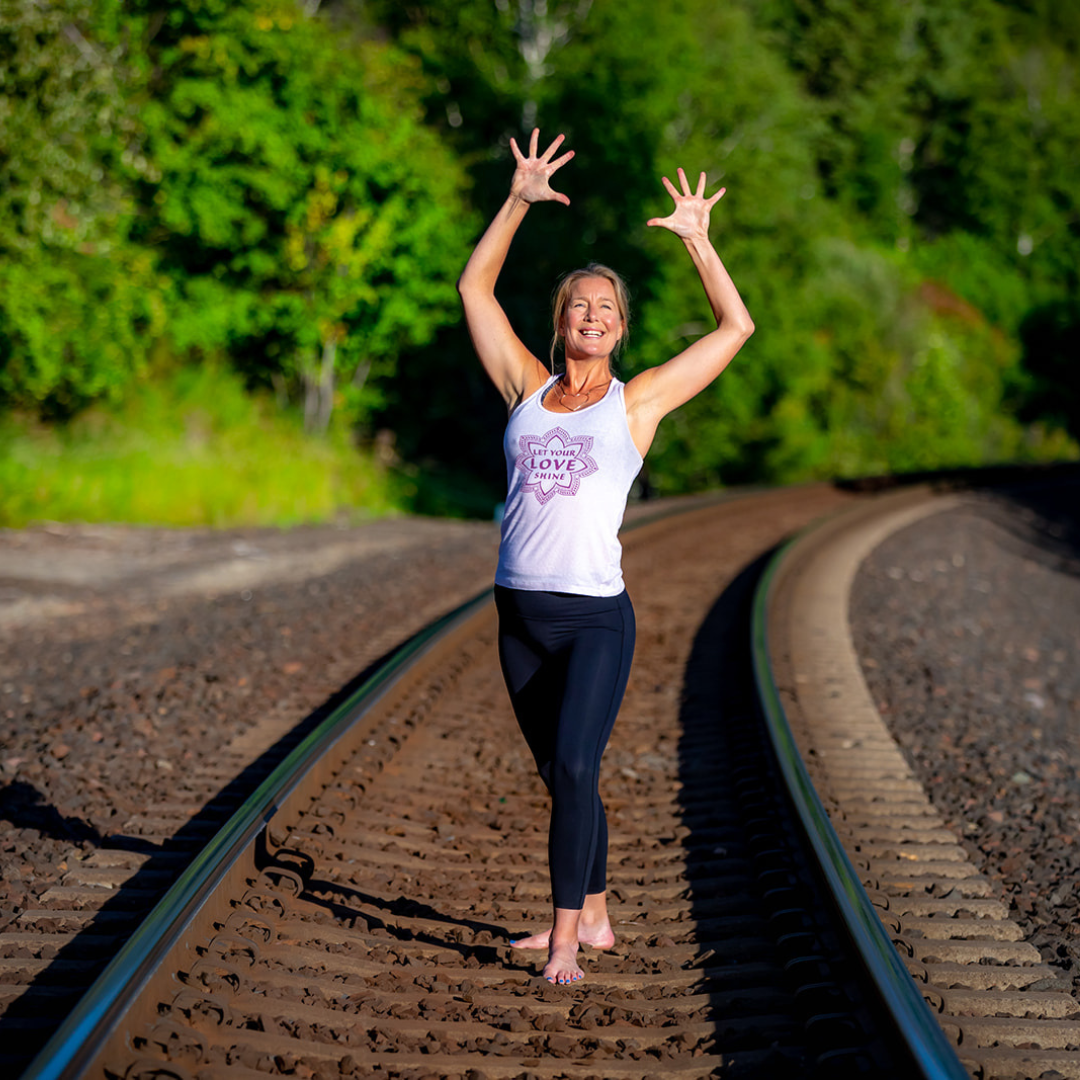
From Self-Criticism to Self-Compassion
Sometimes, I call our current era “The Zoom Age.” I already used Zoom regularly before the pandemic because it was how I met with the EMYoga team twice a week. But I didn’t teach yoga on Zoom or depend on it for my business to nearly the degree that I do now.
And really, I wouldn’t even have the business I currently have or be working in Florida for the winter like I am if it wasn’t for technology like Zoom.
But there is one thing that I dislike about using Zoom for several hours a day and it’s not the computer or the sitting… It’s looking at myself.
If someone had offered to install a mirror in my computer so that I can stare at myself all day, I never would have agreed to it, but on top of all of the other pandemic discomforts, that’s what I got.
I’m not the only one who experiences this either, it has a name: “Zoom Dysmorphia.”
Of course I don’t have to look at myself, and I do primarily look at the others in the meeting with me – but I’m right there! And I want to see what the other people are seeing when they look at my digital square.
This phenomenon has a yogic (and psychological) twist. Have you ever considered the fact that you’ve never really seen your own face? You depend on mirrors, cameras or reflections to see what your face looks like. What if the lens is distorted?
What if your focus is on minor flaws that no one else notices?
After who-knows-how-many Zoom hours, I started to feel that way. I could only see my self-perceived imperfections and not the whole. After all, we all know that Narcissus stared at himself all day every day and that didn’t work out so well for him.
So, in an attempt to develop kinder self-awareness, I started practicing a specific type of meditation called mirror gazing.
The purpose of mirror gazing is to give yourself undivided attention, learn to stay present, manage the intensity of your emotions, and tap into a new inner strength. You learn how much your criticisms are affecting you because you can see it on your face.
Here’s how to practice mirror gazing:
Prepare Your Space and Mind:
Choose a well-lit, distraction-free space with a freestanding mirror. Set an intention to sit with yourself for 1-10 minutes, free from any specific goals.
Breathe and Connect:
Close your eyes and take calming breaths, observing your body’s response and releasing tension, especially in your face and shoulders.
Gaze with Softness:
Open your eyes and notice the change in your breathing as you gaze at yourself. Strive for a gentle, non-critical gaze. Soften your focus if you become fixated on any detail.
Observe Self-Criticism:
When self-criticism arises, shift your attention from the image in the mirror to the inner self receiving these critiques. Reflect on how it feels to receive criticism with compassion. Who is the person underneath who’s receiving this scrutiny?
Experience Emotions (and maybe distraction):
Gaze at your reflection, welcoming any sensations and emotions without judgment. Allow your thoughts and feelings to flow naturally. Observe the ebb and flow of your attention and any associated emotions with kindness and openness. Over the course of 1-10 minutes, you may be surprised by how your self-view evolves.
When I started practicing this, I immediately noticed how my energy was jumping all over the place and it was uncomfortable. Over time, my energy stabilized and I began to feel stronger.
Ultimately, I strengthened my relationship with myself and found a new empathy for others that I didn’t have before.
When I was facing myself I was also facing others. In turn, my feelings towards myself reflected my feelings about others.
And maybe more importantly, I started realizing that I don’t need validation or affirmation from others, because I can find it from within.
For now, my Zoom Appearance Crisis (aka Zoom Dysmorphia) has abated.
If you get strong feelings from your reflection or the Zoom screen, I invite you to give mirror gazing a try. I think you’ll be pleasantly surprised by what you find there.


